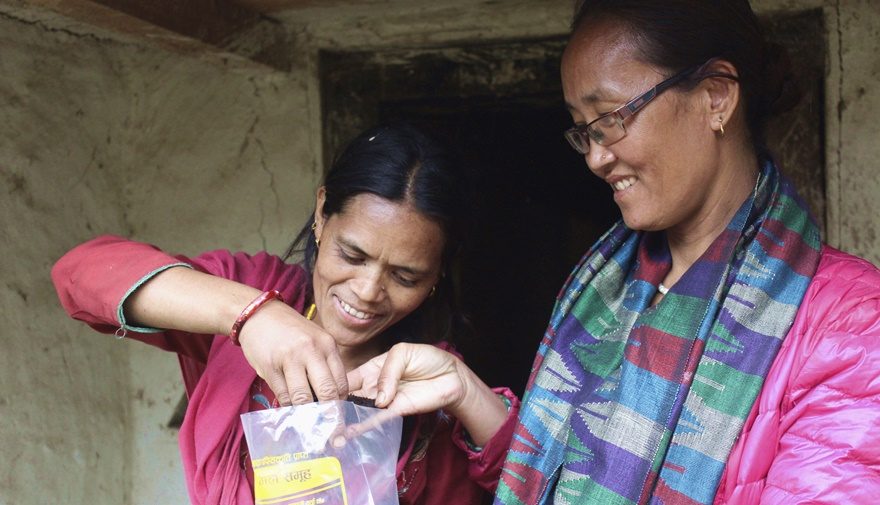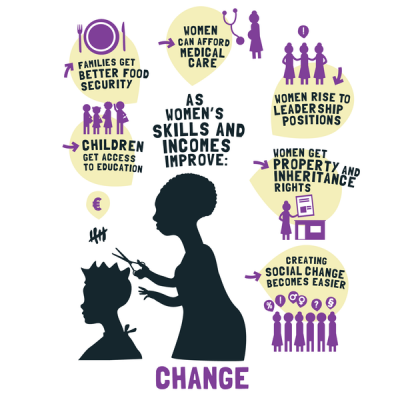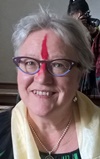On the road to equality

For each of its project countries Women’s Bank creates a unique profile, which charts the needs and opportunities of local women and guides Women’s Bank’s work to answer to the needs and exploit the opportunities. Different procedures all aim at sustainably changing the economic and social standing of women, but offering versatile education to women is always important.
In Cambodia and Nepal the emphasis of our work is on women’s cooperatives and entrepreneurship. Developing female entrepreneurship is also in focus in Myanmar. In addition to small service-providing businesses, such as stores, cafés and barber shops, production of goods is developed to meet local market demands. In Uganda women have also received training on advocacy and strived to facilitate girls’ access to schools. In Sierra Leone girls and young women have been particularly targeted for vocational education to provide them with vital income-generating skills. In Liberia women were trained to manage small-scale poultry farms thus strengthening their economic and social standing within their communities.
 Access to markets, cooperation with the private sector and acquiring funding are always important steps, and quite often very challenging hurdles to overcome. Often women lack natural connections beyond their own community. The mental distance between them and the places of commerce and decision-making is long. The worker rarely knows where their products end up being sold and at what price.
Access to markets, cooperation with the private sector and acquiring funding are always important steps, and quite often very challenging hurdles to overcome. Often women lack natural connections beyond their own community. The mental distance between them and the places of commerce and decision-making is long. The worker rarely knows where their products end up being sold and at what price.
Information, networks and connections are power, and developing the skills and courage necessary to acquire them is important to Women’s Bank. Taking an active role in groups and cooperatives train women to use information and gives them experiences of leadership and negotiation skills. Those are important steps on the road to equality.
When a reserved and quiet woman transforms into a skilled worker, her opinions gain weight at home and within the community. The leading figures in local groups are often influencers who change the world through their own example and skills, people like Gita Shrestha whose story you can read here.
In 2018, Women’s Bank operates in five countries. With fewer project countries the scope and impact of individual projects will grow and there is more room to develop something new. Women’s Bank’s first project to target women living in the poor suburbs of Kampala has begun in Uganda. A new poultry farm project is being planned, also in Uganda, in close collaboration between local partners and Women’s Bank volunteers.
The power of change comes from cooperation.

Text: Ulla Sarasalmi, Senior Advisor, Finn Church Aid
